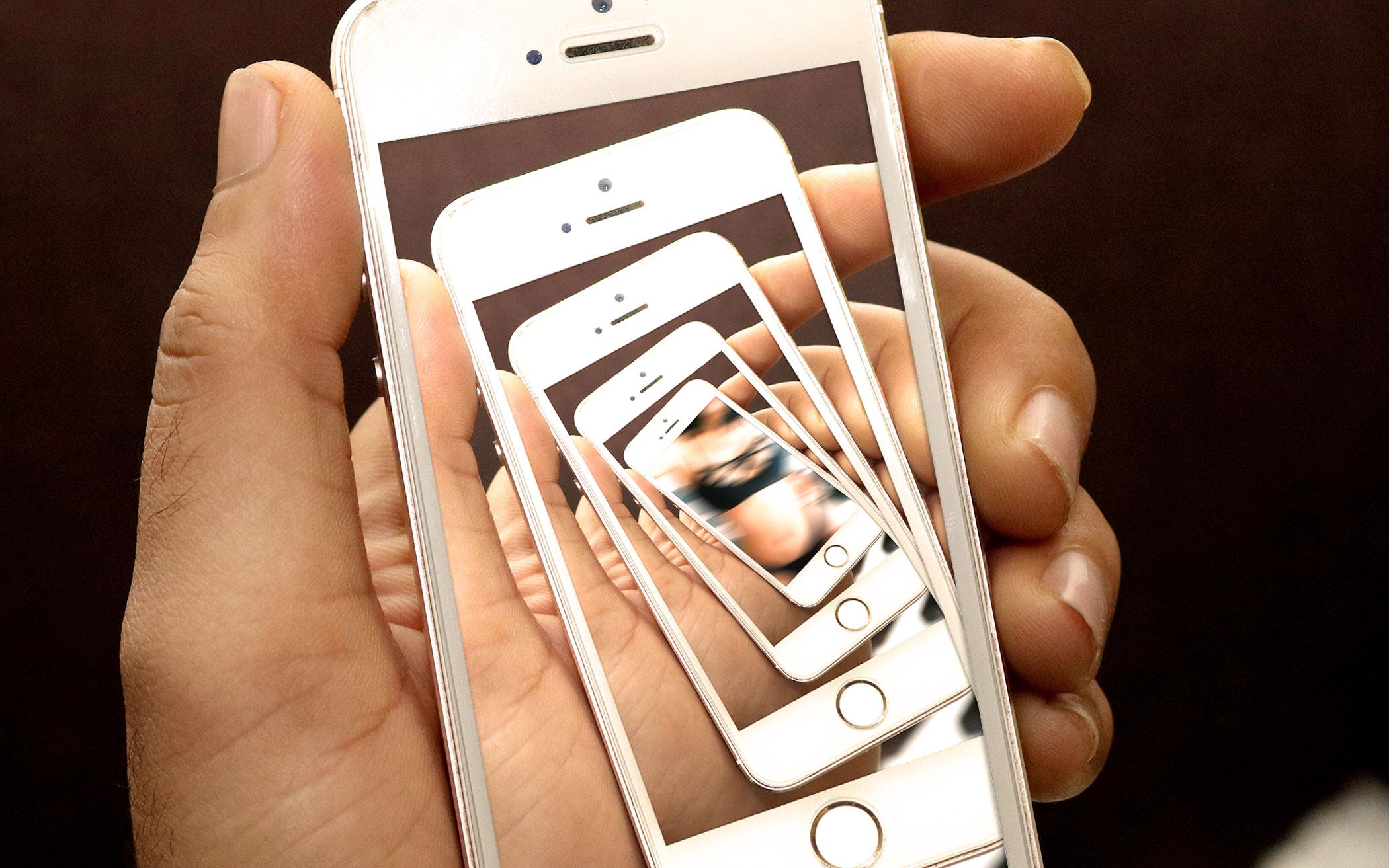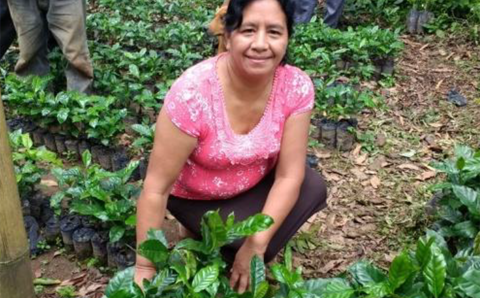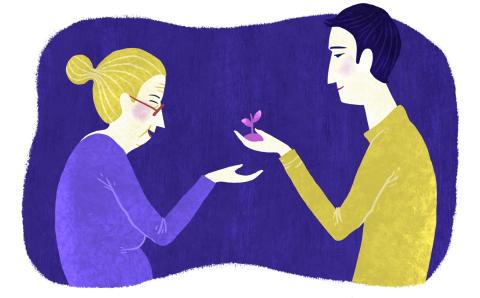A good friend once told me, “When it comes to dealing with the hard things in life, you either pay now or you pay later, but when you pay later, you always pay with interest.” In other words, it’s worth dealing with stuff—even the hard stuff—as it happens. Otherwise, when we finally do get around to dealing with past hurts, the problem becomes like interest: it’s compounded.
My friend’s advice was a valuable piece of wisdom that has proven itself repeatedly with time. But it’s also a truth I’m confronted with regularly in the pain-filled stories I listen to in my office as dean of chapel at a Christian college. Students recount their sexual experiences from high school or even earlier. They share their stories and they cry, wishing they had a time machine so they could undo the decisions they made then because they had no idea how badly they were going to hurt now.
These days, most stories I hear of this stripe have to do with pornography. Virtually every young person is exposed to it and, from what I’ve heard from students, most adolescents have seen hardcore porn before they finish middle school. Yes, hardcore porn. Most kids will already have seen more sexually before they finish middle school than anyone should ever see in a lifetime (including but not limited to group sex, bestiality, rape, and incest). Worse yet, they will have experienced all of this digitally before having experienced real-life butterflies swirl in their stomach as they reach out to hold someone’s hand for the first time, feel the nervousness before a first date, or experience the thrill of a first kiss.
Porn before puppy love. That’s today’s reality.
Our exposure to porn is causing our sexual education to occur backward: We experience digitally what we don’t even have the vocabulary yet to articulate. Profound, often hardcore digital experiences precede even the simplest of real-life ones. This places us at a watershed moment in history. And, let’s be honest, we have no idea yet as to the full impact of these tectonic cultural shifts. Perhaps porn is this generation’s version of smoking—we intuitively know it's killing us; we just don’t yet have all the science to back that knowledge up.
But as people living out the story of Scripture, we shouldn’t be all that surprised. Consider the impact of the first-ever sin: “Then the man and his wife heard the sound of the Lᴏʀᴅ God as he was walking in the garden in the cool of the day, and they hid from the Lᴏʀᴅ God among the trees of the garden. But the Lᴏʀᴅ God called to the man, ‘Where are you?’ He answered, ‘I heard you in the garden, and I was afraid because I was naked; so I hid’” (Gen. 3:8-10).
The first place we felt the effects of sin was related to our sexuality: Nakedness. Shame. Hiding. And when it comes to our sexuality, we’ve been hiding ever since.
The most vulnerable part of our being, the part most susceptible to the effects of sin and the pain it causes, is our sexuality. Yet our sexuality is a vital and vibrant part of who we are, an unparalleled part of our ability to love and to be loved. Our sexuality is nothing short of an expression of the image of God within us.
But for many of us, it’s also a source of great pain and ongoing temptation. It’s hard to talk about sex, and in Christian circles, we tend to err on the side of silence. As a result, many of us Christians grow up with a split personality when it comes to our sexuality. We have our Christian self, and we have our sexual self—and for the most part, they aren’t talking to each other. Worse yet, we imagine that God doesn’t like the sexual part of us. When we think and live like this, it’s impossible to experience the fullness of redemption because a significant part of our identity hasn’t even begun a conversation with God about what it means to be redeemed.
Christians need to stop acting as if Adam and Eve snuck out of the bushes all red-faced, out of breath, and giggling, “Guess what we just figured out, God!” As if sexuality wasn’t part of God’s creation. As if this wasn’t part of God’s good design. As if God doesn’t have answers to the important questions we ask.
As a campus pastor, for eight years I’ve been listening to college students cry through stories of sexual pain as they wake up one day and realize that what they once considered “dabbling” or have rationalized away they now can’t quit. They can’t undo what they’ve seen. They can’t stop what they’re doing. They’re addicted, even if they’d never use that word to describe it.
I hate the pain that porn causes. I hate the relationships it holds hostage. I hate the way it stunts our maturity. And I hate how the evil one is winning with the very lie that porn sells. As one of my college students said, “Trying to satisfy my sexual cravings with pornography was like trying to drink salt water when I was thirsty.”
Here’s what I’m learning every young person wishes they could go back and tell his or her 11-year-old self:
- How you perceive God matters greatly. At the risk of sounding reductionist, most people when confronted with sin see God in one of two ways: God is either angry at them or angry for them. The first perpetuates shame and guilt and only compounds the problem; the second points to a cross meant to deal with all sin, including viewing porn, long before the world even knew what it was.
- You can’t take out of a grave on Sunday what you don’t nail to a cross on Friday. Own your struggle with pornography. Name it. Deal with it. Hate it. Heal from it. Jesus didn’t come to die for the best of who you are, or for your future, imaginary self; he came for the worst of who you are, porn and all. Leverage the strength of the cross and resurrection. Hold out hope. Don’t be satisfied with anything less than restoration in Christ Jesus. He literally died to give you that chance.
- Risk being vulnerable. The day you first tell someone about your struggle with porn is the day you first move toward healing. Yes, it’s difficult, but vulnerability is also powerful. It’s the currency by which intimacy is purchased, and no one can love what they don’t know. Theologian Chuck De Groat calls vulnerability the antidote to shame—so be vulnerable. Tell someone about your struggle. The moment you do, you’ll be closer to healing than ever before.
- You were created a sexual being and a follower of Jesus. These two realities belong together. You need to know that God is enamored with you—all of you. Your sexuality wasn’t a mistake. It’s a part of God’s perfect plan. It might be broken now, but genuine discipleship might be more about living in the tension of your temptations than the resolution you may not fully find until the other side of glory.
About the Author
Aaron Baart lives in Sioux Center, Iowa, with his family of seven. He serves as the dean of chapel at Dordt University and is the co-founder and president of One Body One Hope, a church-planting and community development ministry in Liberia. He and his family attend First Reformed Church in Sioux Center. He co-authored Vivid: Deepening Your Colors with Syd Hielema.







